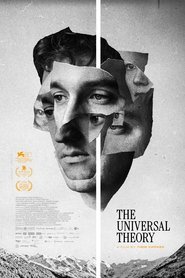Did Christopher Nolan's Swiss cousin make this arthouse thriller? You know, the one who's been watching a little too much on the Criterion Channel lately?
The end result of all the Last Year in Marienbad, Sans Soleil, Vertigo, Magic Mountain, Spellbound, The Man Who Knew Too Much, The Third Man and all the other Antonioni and noir (etc.) homages were, when paired with the acutely middlebrow quantum physics nonsense, a little too reminiscent of those popular science paperbacks I bought in my teens: quite engaging if you haven't seen it done a few times before, and mildly embarrassing when you think back on it a few years later. It reminded me a little too much of the recent International Booker winner, When We Cease to Understand the World.
My entirely personal theory (get it?) is that the film would have been dramatically approved by cutting the last fifteen minutes, going straight to the credits immediately after Karin walks through the anomaly. A film that asks more questions than it answers, and doesn't encourage the viewer to attempt to answer them.
Prioritizes atmosphere over explanation, to intoxicating but diminishing effect. As Johannes chases wisps of echoes through the maze Kröger has devised, he rarely grasps more than glimpses of answers to his questions and the audience along with him.
— Isaac Feldberg (RogerEbert.com)
[One] danger from a narrative point of view is that the multiverse has third act problems. How do you decide when and where to stop when that conclusion could come anywhere, anything, anytime you like
— Daniel Green (CineVue)
The prologue is a terrifically well-achieved riff on 1980s TV in which Johannes, here a kind of Fassbinder figure complete with unhealthy pallor, scraggly facial hair and flopsweat, goes on a German talk show to promote his bestselling sci-fi novel. And the entire last chapter of the film unfolds as a quasi-homage to the French New Wave, with a drolly authoritative voiceover reporting on how Johannes’ life – marked forever by his quest to reunite with his lost love, Karin — will unfold, right up until the moment of his death.
— Jessica Kiang (Variety)
A jarring line of narration late in the film hints at the more ambitious, or at least coherent, movie this might have been. Our protagonist/author is said to have been unstirred by the student protests of the ’60s, and merely a spectator like the rest of us to “the Soviet moon landings.”
— Roger Moore (Movie Nation)
Synopsis: Johannes, a doctor of physics, travels with his doctoral supervisor to a scientific congress in the Alps. A series of mysterious incidents occur on site. He meets Karin, a mysterious jazz pianist who seems to know more about him than she can know. Suddenly, mysterious deaths begin to pile up and Johannes tries to uncover the secret under the mountain.

